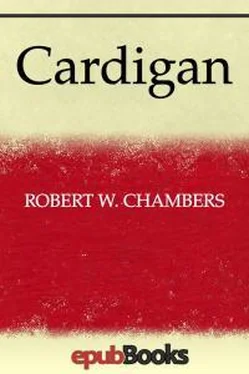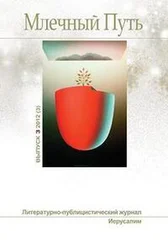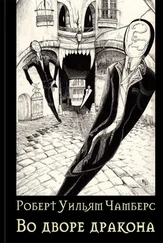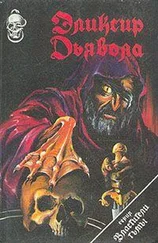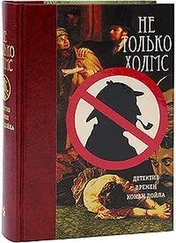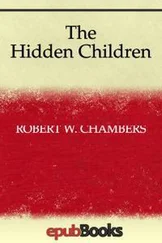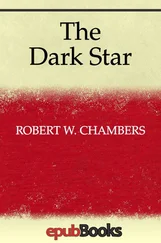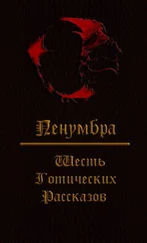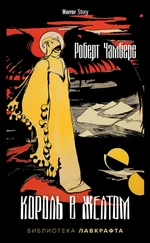Роберт Чамберс - Cardigan
Здесь есть возможность читать онлайн «Роберт Чамберс - Cardigan» весь текст электронной книги совершенно бесплатно (целиком полную версию без сокращений). В некоторых случаях можно слушать аудио, скачать через торрент в формате fb2 и присутствует краткое содержание. Год выпуска: 2014, Издательство: epubBooks Classics, Жанр: Историческая проза, на английском языке. Описание произведения, (предисловие) а так же отзывы посетителей доступны на портале библиотеки ЛибКат.
- Название:Cardigan
- Автор:
- Издательство:epubBooks Classics
- Жанр:
- Год:2014
- ISBN:нет данных
- Рейтинг книги:3 / 5. Голосов: 1
-
Избранное:Добавить в избранное
- Отзывы:
-
Ваша оценка:
- 60
- 1
- 2
- 3
- 4
- 5
Cardigan: краткое содержание, описание и аннотация
Предлагаем к чтению аннотацию, описание, краткое содержание или предисловие (зависит от того, что написал сам автор книги «Cardigan»). Если вы не нашли необходимую информацию о книге — напишите в комментариях, мы постараемся отыскать её.
Cardigan — читать онлайн бесплатно полную книгу (весь текст) целиком
Ниже представлен текст книги, разбитый по страницам. Система сохранения места последней прочитанной страницы, позволяет с удобством читать онлайн бесплатно книгу «Cardigan», без необходимости каждый раз заново искать на чём Вы остановились. Поставьте закладку, и сможете в любой момент перейти на страницу, на которой закончили чтение.
Интервал:
Закладка:
"Come, boys," said I, pleasantly, "this town is no place for brawls. Let it end here—do you understand?—or Sir William shall learn of it!"
The soldiers had stepped forward to salute, the two rangers laughed scornfully, flung their rifles over their shoulders, and passed on into the darkness with noiseless, moccasined stride.
Waiting to see that the crowd dispersed without disorder, far down the dim street I heard the two rangers break out into a foolish catch:
"Who comes here?
A grenadier!
What d'ye lack?
A pot o' beer!
Where's your penny?
I forgot—
Get you gone, you red–coat sot!"
A most uncomfortable sensation came over me, although I did not fully understand that "red–coat" was a reproach. But the loose laughter, the disrespectful tone, the devil–may–care swagger of these fellows disturbed me. What had they meant by "lobster–back" and "Tommy Gage" and "Bully Tryon?" Surely they could not have referred to General Gage of Boston or to our Governor! Did they mean Sir William's son, John, by their "diddle dumpling?" What quarrel had they with the King's soldiers? They had been courteous enough to me, unless they intended their song as an insult.
The blood stung my face; I put Warlock to a gallop and overtook the pair. They were arm in arm, swaggering along, ogling the towns–people, jostling the crowd, sometimes mocking the bare shanks of a Highlander, sometimes hustling an Indian, or tweaking the beard of a Jew peddler, now doffing their caps to some pretty maid, now digging the ribs of a sober Quaker, and ever singing of "diddle diddle dumpling" or of the grenadier and his pot of beer.
Such license and freedom displeased me. I had never before observed it in our town or among those who came to the Hall. However, I now saw that I could not with dignity notice either their boorish gallantry, their mischief, or the songs they were pleased to bawl out in the street.
I therefore passed them in silence, and, loosening bridle, set Warlock at a gallop for home.
I did not comprehend it at the time; indeed, the whole matter passed from my mind ere the lights of the Hall broke out in the blue night. Yet the scene I had witnessed was my first view of the unrest which tormented the whole land, the first symptom of that new fever for which no remedy had yet been found.
Chapter VI
It was not yet dawn, though a few birds sang in the darkness around us, as Sir William and I set off for the Cayuga's lodge, which stood beyond the town on a rocky knoll, partly cleared of trees.
The air was cold and without fragrance, for in our country it is the sun that draws the earth's sweetness in early spring.
The stars lighted us through the streets of Johnstown, empty of life save for the muffled watchman dozing in his own lanthorn glow, who roused as he heard us, and shook his damp cloak. And far behind us we heard his sing–song:
"Four o'clock! A cold, fair morn, and all well!"
One inn there was, where the dim bush swung wet and sleek as a clinging bat, and where stale embers of the night's revelry still flickered; for, behind the lighted windows, men were singing, and we heard them as we passed:
"Oh, we're all dry
Wi' drinking on't—
We're all dry
Wi' drinking on't.
The piper kissed
The fiddler's wife;
And I can't sleep
For thinking on't!"
"Starbuck's Inn," muttered Sir William, grimly. "He's a Boston man; they drink no tea there."
And, as we strode on in the darkness, behind us, from the lighted hostelry, came a husky echo of that foolish catch:
"Diddle diddle dumpling,
My son John—"
So I knew that my buckskin birds were still chirping among us.
But now we were on the stony way and the town sank below us as we climbed towards Quider's lodge, knee–deep in dewy thistles.
The spark of a tiny council fire guided us. Coming nearer we smelled black birch burning, and we saw the long thread of aromatic smoke mounting steadily to the paling stars.
We passed a young basswood–tree from which hung a flint, symbol of the Mohawks. From another chestnut–sapling dangled the symbol of the Cayugas, a pipe. All at once we saw Quider, standing motionless before his lodge.
Sir William drew flint and tinder from his pouch, and sent a spark flying into the dry tobacco of his pipe. He drew it to a long glow, twice, and passed it, through the smoke of the fire, to Quider.
I saw the Cayuga's face then. It was a strange red, yet it was not painted. He seemed ill; his eyes glittered like the eyes of a lynx.
And now, as the Indian sank down into his blanket before the fire, Sir William produced a belt from the folds of his cloak and held it out. The belt was black with two figures woven in white on it. The hands of the figures were clasped together. It was a chain–belt.
" Brother ," he said, slowly: "The clouds which hang over us prevent us from seeing the sun. It is, therefore, our business, with this belt, to clear the sky. And we also, with this belt, set the sun in its proper course, so that we may be enabled to see the narrow path of peace."
( Gives the belt. )
" Brother : We have heard what you have said about Colonel Cresap; we believe he has been misled, and we have rekindled the council fire at Johnstown with embers from Onondaga, with embers from the Ohio, with coals from our proper fireplace at Mount Johnson.
"We uncover these fires to summon our wisest men so that they shall judge what word shall be sent to Colonel Cresap, to secure you in your treaty rights which I have sworn to protect by these strings!"
( A bunch of strings. )
" Brother : By this third and last belt I send peace and love to my brethren of the Cayuga; and by this belt I bid them be patient, and remember that I have never broken my word to those within the Long House, nor yet to those who dwell without the doors."
( A large black belt of seven rows. )
Then Sir William drew from his girdle a belt of wampum, so white that, in the starlight, it shimmered like virgin silver.
"Who mourns?" asked Sir William, gently, and the Indian rose and answered: "We mourn—we of the Cayuga—we of three clans."
"What clans shall be raised up?" asked Sir William.
"Three clans lie stricken: the Wolf, the Plover, the Eel. Who shall raise them?"
" Brother ," said Sir William, gravely. "With this belt I raise three clans; I cleanse their eyes, their ears, their mouths, their bodies with clean water. With this belt I clear their path so that no longer shall the dead stand in your way or in ours."
( The belt. )
" Brother : With these strings I raise up your head and beg you will no longer sorrow."
( Three strings. )
" Brother : With this belt I cover the graves."
( A great white belt. )
In the dead stillness that followed the northern hill–tops slowly turned to pink and ashes. The day had dawned.
When again we reached the village cocks were crowing in every yard; the painted weather–vanes glowed in the sun; legions of birds sang.
From Starbuck's Inn stumbled forth a blinking, soiled, and tipsy company, linking arms, sidling, shoving, lurching, and bawling:
"Oh, we're all dry
Wi' drinkin' on't!"
And I plainly saw my two coureurs–de–bois, boozy as owls, a–bussing the landlord's greasy wench while mine host pummelled them lustily, foot and fist.
So on through the cold shadowy street and out into the sun–warmed road again, and at last to the Hall where, on the sunny porch, stood Silver Heels, hair in her eyes, her naked white feet in moccasins, washing her cheeks in the dew.
Читать дальшеИнтервал:
Закладка:
Похожие книги на «Cardigan»
Представляем Вашему вниманию похожие книги на «Cardigan» списком для выбора. Мы отобрали схожую по названию и смыслу литературу в надежде предоставить читателям больше вариантов отыскать новые, интересные, ещё непрочитанные произведения.
Обсуждение, отзывы о книге «Cardigan» и просто собственные мнения читателей. Оставьте ваши комментарии, напишите, что Вы думаете о произведении, его смысле или главных героях. Укажите что конкретно понравилось, а что нет, и почему Вы так считаете.
